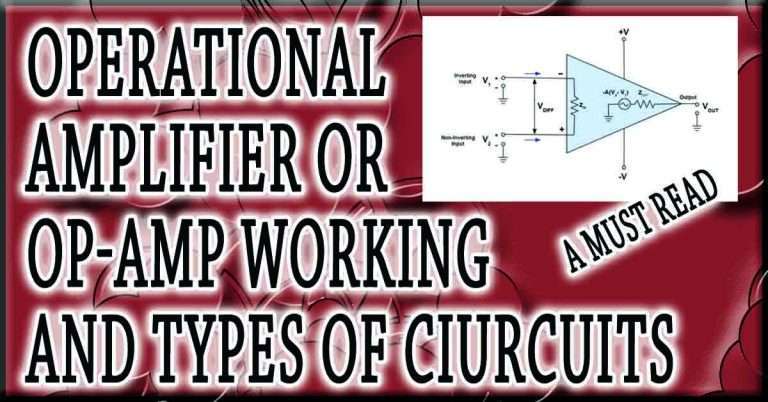How Much Does a Public EV Charging Station Cost in 2025
Electric vehicles (EVs) are no longer a niche trend. They are mainstream. Every major car manufacturer has committed to electrification, and governments worldwide are supporting this shift. But the growth of EV adoption depends heavily on the availability of charging infrastructure. While home charging works for many users, public charging stations are essential for long-distance travel, urban drivers without private garages, and commercial fleets. A common question asked by businesses, policymakers, and investors is: how much does a public EV charging station cost in 2025?
Table of Contents
Table of Contents

This is not a one-size-fits-all answer. The cost depends on multiple factors, such as charger type, installation requirements, grid capacity, location, and additional services. With EV sales rising sharply, knowing the latest cost ranges in 2025 is crucial for anyone planning to invest in charging infrastructure.
Before we dive deeper into the details, let’s highlight the key takeaways for quick reference.
Key Takeaways:
- A public EV charging station in 2025 can cost anywhere between $3,000 and $150,000 per unit, depending on whether it is a Level 2 or DC fast charger.
- Installation costs can sometimes be higher than the equipment itself, especially if trenching, grid upgrades, or permits are required.
- Businesses must also factor in land leasing, software, networking, and maintenance, which significantly affect long-term ROI.
- Government incentives, tax credits, and utility rebates can reduce upfront costs by up to 30–40% in many regions.
- The right cost estimate depends on usage goals: small retail chargers differ from highway fast-charging hubs.
Know more about Tax Credit for Business EV Charger Installation: 2025 Incentives & How to Qualify
Now let’s break down the details step by step.
How Much Does a Public EV Charging Station Cost in 2025?
The direct answer: the cost varies widely. In 2025, here are the typical ranges:
| Charger Type | Power Output | Equipment Cost (USD) | Installation Cost (USD) | Total Estimated Cost (USD) |
|---|---|---|---|---|
| Level 2 Charger | 7–22 kW | $2,000 – $5,000 | $1,000 – $10,000 | $3,000 – $15,000 |
| DC Fast Charger | 50–150 kW | $15,000 – $40,000 | $20,000 – $60,000 | $35,000 – $100,000 |
| Ultra-Fast DC | 200–350 kW | $40,000 – $100,000 | $50,000 – $80,000 | $90,000 – $180,000 |
These numbers show why businesses ask how much does a public EV charging station cost so often. The variation is huge because installation complexity can swing costs dramatically. For instance, if your site needs only a simple panel connection, installation is cheap. But if heavy-duty trenching or utility upgrades are required, costs can double.
Factors That Affect How Much a Public EV Charging Station Costs
Several factors determine the real-world cost of setting up a charging station:
Charger Type and Speed
Level 2 chargers are affordable and suitable for workplaces, malls, and parking lots. DC fast chargers are far more expensive but vital for highways, fleet hubs, and urban high-traffic zones.
Installation Complexity
Costs rise if the site needs trenching, electrical upgrades, or transformer replacements. Urban locations usually face higher labor and permit costs compared to rural setups.
Utility and Grid Capacity
Many DC fast chargers require significant power. If the existing grid connection cannot handle the load, utilities may need to add new service lines or transformers. These upgrades can add tens of thousands of dollars.
Know more about JuiceBox vs ChargePoint Home Flex: 2025 In-Depth Comparison
Software and Networking
Modern chargers are not just outlets; they are smart devices. Operators pay for networking, remote monitoring, and payment processing. These subscriptions usually cost $300–$1,000 per year per charger.
Permits and Regulatory Fees
Local permitting, inspections, and compliance with building codes vary widely. Some regions streamline the process, while others create bottlenecks that increase costs.
Site Preparation and Amenities
If the charging station includes shelters, lighting, signage, or amenities like restrooms, these add to the investment.
Comparing Costs Across Regions in 2025
The question how much does a public EV charging station cost also depends on where you are. Labor, utility rates, and incentives vary significantly.
| Region | Level 2 Average Cost | DC Fast Charger Average Cost |
|---|---|---|
| United States | $5,000 – $15,000 | $40,000 – $120,000 |
| Europe | €4,500 – €14,000 | €35,000 – €110,000 |
| UK | £4,000 – £12,000 | £30,000 – £95,000 |
| Asia-Pacific | $3,500 – $12,000 | $30,000 – $90,000 |
Governments in these regions often provide tax credits, rebates, or grants that cover 20–40% of total costs, making investments more attractive.
Know more about Hardwired vs Plug In EV Charger: Which is Better for Your Home?
Long-Term Costs of a Public EV Charging Station
When asking how much does a public EV charging station cost, most people think only about purchase and installation. But ongoing expenses matter just as much:
- Electricity Costs – Operators must negotiate tariffs with utilities. Demand charges can make fast charging expensive.
- Networking Fees – Smart features require annual subscriptions.
- Maintenance – Hardware servicing, cable replacements, and software updates add recurring costs.
- Land Lease – If placed on rented property, lease agreements must be factored in.
- Insurance – Liability insurance is often required, especially for public-facing installations.
On average, annual operating expenses for a DC fast charger can range from $2,000 to $6,000 per unit.
ROI: Can Public EV Charging Be Profitable in 2025?
Installing chargers is not just a cost—it can be a revenue stream. Businesses want to know whether these investments pay off.
Revenue depends on several factors:
- Utilization Rate – How often the charger is used. High-traffic areas earn more.
- Pricing Model – Flat fee, per kWh, or time-based.
- Additional Business Value – Retailers and restaurants benefit from longer customer dwell times.
In 2025, typical payback periods for Level 2 chargers are 3–5 years in high-traffic areas, while DC fast chargers can take 5–10 years, depending on incentives and utilization.
Know more about Single Phase vs Three Phase EV Charger Load Calculator
Case Example: Small Business vs Highway Charging Hub
To illustrate how much does a public EV charging station cost, consider two examples:
- Small Retail Parking Lot
Installs 4 Level 2 chargers.- Equipment: $12,000
- Installation: $20,000
- Total: $32,000
- Incentives: $10,000 rebate
- Final Cost: $22,000
- Highway Fast Charging Hub
Installs 6 DC fast chargers (150 kW).- Equipment: $180,000
- Installation: $240,000
- Utility Upgrade: $100,000
- Total: $520,000
- Incentives: $150,000
- Final Cost: $370,000
This shows how drastically costs differ based on project scale.
Future Trends That Influence Costs
When analyzing how much does a public EV charging station cost in 2025, it’s important to consider trends that could lower costs in coming years:
- Technology Advances – As charger hardware becomes mass-produced, prices are dropping.
- Faster Installation Processes – Prefabricated units and simplified permitting reduce labor hours.
- Utility Partnerships – Some utilities now co-invest in charging infrastructure, lowering upfront capital for businesses.
- Vehicle-to-Grid (V2G) Systems – These may allow chargers to earn money by feeding energy back to the grid.
- Government Incentives – Continued subsidies are expected, especially in regions targeting aggressive EV adoption goals.
Know more about How to Calculate Load for Multiple EV Chargers in Apartment Buildings
Conclusion: How Much Does a Public EV Charging Station Cost in 2025?
So, how much does a public EV charging station cost in 2025? The answer is a range—from as low as $3,000 for a simple Level 2 unit to nearly $180,000 for an ultra-fast DC charger with complex installation. The real number depends on charger type, site conditions, and local policies.
For small businesses, a modest setup is affordable and can attract customers. For highway operators, the investment is larger but essential for enabling long-distance EV travel. With government support and rising EV demand, the ROI outlook is stronger than ever.
Follow Us on Social:
Subscribe our Newsletter on Electrical Insights for latest updates from Electrical Engineering Hub
#EVChargingCost, #PublicEVCharging, #EVChargingStations, #EVCharging2025, #ElectricVehicleCharging, #EVChargingInfrastructure, #EVChargingNetwork, #SustainableTransport, #EVChargingSolutions, #CleanEnergyEV, #FutureOfEV, #PublicChargingStations, #EVChargerInstallation, #EVMarket2025, #ElectricMobility


